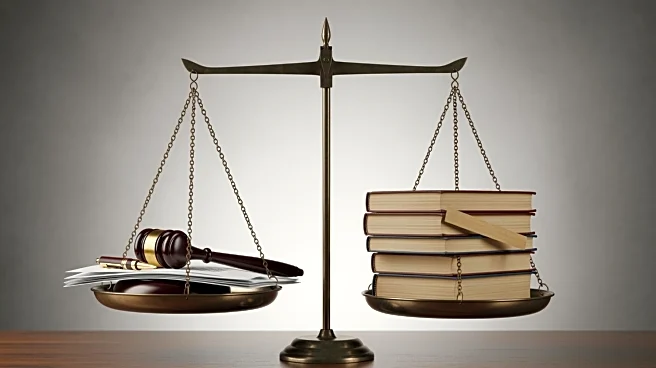What's Happening?
The lawsuit filed by OCLC, a nonprofit global library organization, against Baker & Taylor (B&T) and its subsidiary Bridgeall Libraries is progressing in the U.S. District Court for the Southern District of Ohio.
OCLC, which operates the bibliographic records database WorldCat, accuses B&T of unlawfully obtaining WorldCat records to enhance its own cataloging system, BTCat, which competes directly with WorldCat. The case's advancement follows the expiration of a 30-day stay, with OCLC seeking a preliminary injunction to prevent further use of its data by B&T. The legal dispute has already affected B&T's business operations, including the collapse of a sale to ReaderLink, leading to financial difficulties and layoffs.
Why It's Important?
This legal battle holds significant implications for the library services industry, particularly concerning the accessibility and integrity of bibliographic data. OCLC's WorldCat is a crucial resource for libraries worldwide, and the alleged data misappropriation by B&T threatens its competitive edge and customer base. The outcome of this case could influence how library data is shared and protected, impacting libraries' ability to access reliable cataloging services. Additionally, the financial instability of B&T, exacerbated by the lawsuit, affects publishers and library partners who rely on its services, potentially leading to shifts in the wholesaling landscape.
What's Next?
The court has directed B&T to respond to OCLC's motion for a preliminary injunction by November 6, with OCLC required to reply by November 7. The decision on the injunction will be pivotal in determining BTCat's future and B&T's ability to continue its operations. Stakeholders, including libraries and publishers, are closely monitoring the case, as its resolution will impact their strategic decisions regarding partnerships and data management. The potential sale of B&T's assets, including BTCat, remains uncertain and contingent on the court's ruling.
Beyond the Headlines
The case underscores the ethical and legal challenges in the digital management of bibliographic data. It raises questions about the balance between competition and intellectual property rights in the library services sector. The outcome could set precedents for how data agreements are structured and enforced, influencing future collaborations and innovations in library technology.











